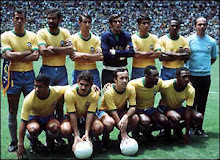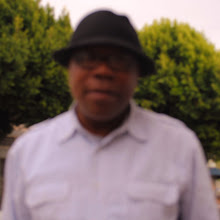
The encounters between these countries have never been boring. There is always an edge, sometimes tense because of the scoreline (as at the tournaments in 1994 and 1998) or just for utter violence on the pitch.
At the 1974 World Cup, both sides met in Dortmund to play for a place in the final. It was in fact the third group game in the second round but, as both had gathered maximum points, it felt like a semi-final. With a superior goal difference, Netherlands only needed a draw, but in everyone's mind this match is remembered as a knock-out contest. It literally was. With 55 fouls in 90 minutes it was one of the most violent World Cup matches ever.
The Oranje had found many admirers during the tournament, while their South American opponents possessed a formidable reputation, having won the 1970 World Cup in such style. But the 1974 meeting will remembered for an incident that was not compatible with Brazil's reputation as football purists; Luis Pereira's violent kick on Johan Neeskens had little to do with 'the beautiful game'.
The viewers at home may have been lucky that 1974 did not have the extensive camera coverage we have today, because it was cruel. In the first-half, Neeskens was knocked unconscious, before Pereira's brutal second-half challenge resulted in a red card for the Brazil centre-back and an unseemly exchange with Dutch fans as he left the pitch.
The golden shirts associated with Brazil's World Cup success four years previous were absent as the team played completely in blue, while the Dutch wore white but certainly did not come in peace. Rinus Michels' side were not sure what their first real meeting with the world champions would bring them and so resorted to a less adventurous style than the games before.
But it seemed that someone lit a fuse on the Weststadion pitch, resulting in a fascinating evening of ruff'n'tumble. Aside from a minute of silence to honour Argentinian president Juan Peron who had died two days before, German referee Kurt Tschenscher failed to take control of the game. What should have been a festival of football between the guiding lights of the international game of that era turned into a sensational slugfest with players constantly battling behind the referee's back.
The 2010 version of this fixture could well go the same direction. Four years ago Holland showed their dark side in the second round match against Portugal, who were not unwilling to take up the fight themselves. With a similar background, the Brazilians will not be the ones to shy away when the going gets physical; they may even believe it could benefit them as it could derail the Dutch game.
Dutch legend Johan Cruyff highlighted the focus on defence this week, telling the Daily Mirror: "Brazil need to play with more intensity, more bite on the pitch, because they are not special. Always the fans want to enjoy Brazil, enjoy their fantasy at World Cups, but they do not have that this summer. They have talented players but they play in a way which is more defensive and is less exciting." He was not that impressed by the Dutch team either.
Meanwhile, the pitch in Port Elizabeth has suffered as a result of bad weather conditions, which could influence the flow of the game. It might not be a brilliant showpiece of formidable football on Friday, but the tension will certainly make up for that. Not only for the spectators and television viewers, but for the players as well.
After the game against Slovakia, coach Bert van Marwijk had to control a sudden bushfire between Wesley Sneijder and Robin van Persie. The Arsenal player had a frustrating afternoon up front - the latest victim of that isolated position - but did not appreciate his substitution at all. Dutch lipreaders said that he told his coach that he should have taken off Sneijder, whom he apparently blamed for his own poor showing. Van Marwijk nipped the trouble in the bud, though he must notice that his striker is rather ineffective at the moment.
In order to break down the Brazilians, maybe Van Persie should learn a lesson from Cruyff. In the early seventies, Cruyff drifted away from the striker position at Ajax to avoid being kicked by central defenders. The goals were then made by anyone who surged into the box, supplied by perfect Cruyff assists.
The AS Roma of Luciano Spalletti employed similar tactics very successfully a few years ago with Francesco Totti, masquerading as a striker, but mainly playing from midfield. Spalletti confessed to have copied it from Cruyff's Ajax.
"Fast, free-flowing attacks in which offensive side midfielders make darting runs past the lone striker in possession outside the box, amid quick interchanges of accurate passes. When it works well, players swap roles and position with beautiful fluidity. It makes them unpredictable and disorientates defenders," Spaletti told Champions Magazine in an interview in May 2008. You can imagine Van Persie doing the same.
Dirk Kuyt and Arjen Robben may be the perfect players to move into the space he leaves behind, but the fluidity will rely on Van Persie and Sneijder burying their differences. If they manage to make their partnership work, there might be a surprise in store. Although it may not be pretty.


